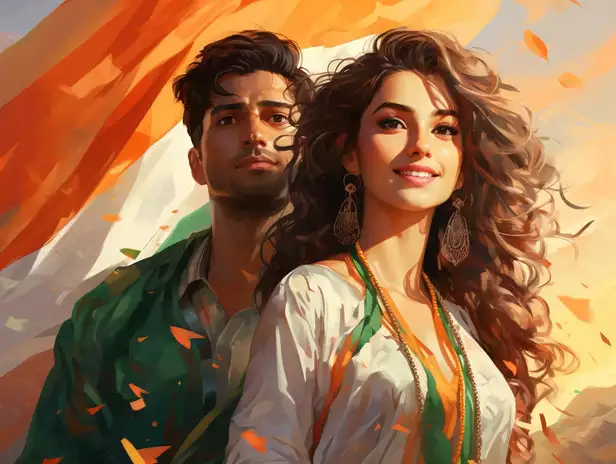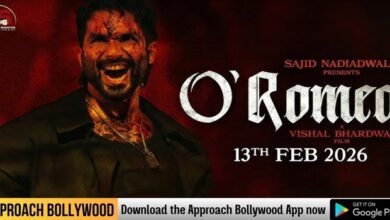
By Sonu Tyagi, Editor & Founder, Approach Bollywood & Approach Entertainment
The entertainment industry—spanning films, television, and music—is on the cusp of a transformative revolution driven by Artificial Intelligence (AI). As technology continues to evolve at an unprecedented pace, AI is reshaping how content is created, distributed, and consumed. From scriptwriting to personalized viewer experiences, the influence of AI is undeniable, and its potential to disrupt the industry is both exciting and profound.
AI in Film Production: Redefining Creativity
In filmmaking, AI is becoming an indispensable tool for creators. AI-powered algorithms can now analyze scripts, predict box-office performance, and even suggest edits to enhance audience engagement. Tools like script analysis software can evaluate dialogue, pacing, and emotional arcs, offering filmmakers data-driven insights to refine their narratives.
Moreover, AI is revolutionizing visual effects (VFX) and post-production. Generative AI models can create hyper-realistic CGI environments, reducing the need for costly physical sets. For instance, AI-driven deepfake technology enables filmmakers to de-age actors or recreate historical figures with stunning accuracy, as seen in films like The Irishman. Additionally, AI-powered editing tools can automate tedious tasks like color grading or sound syncing, allowing editors to focus on creative storytelling.
However, the rise of AI in filmmaking raises questions about creativity. Can AI truly replicate the human spark that drives iconic cinema? While AI can augment creativity, the heart of storytelling remains a human endeavor, blending emotion and imagination in ways machines cannot fully emulate.
Television: Personalization and Efficiency
In the realm of television, AI is transforming both production and viewer experiences. Streaming giants like Netflix and Amazon Prime leverage AI algorithms to analyze viewer preferences, curating personalized content recommendations that keep audiences hooked. These platforms use predictive analytics to determine which shows are likely to succeed, guiding decisions on what to produce or renew.
AI is also streamlining TV production. Automated scheduling tools optimize shooting timelines, while AI-driven cameras can track actors’ movements, reducing the need for multiple takes. Furthermore, AI-generated subtitles and dubbing in multiple languages are making content accessible to global audiences faster than ever before.
The downside? Over-reliance on AI-driven recommendations risks creating echo chambers, where viewers are fed similar content, potentially stifling diversity in storytelling. The challenge for TV producers will be to balance AI’s efficiency with the need for fresh, innovative narratives.
Music Industry: Composing the Future
The music industry is witnessing AI’s disruptive power in both creation and consumption. AI platforms like AIVA and Amper Music can compose original tracks in various genres, enabling artists to experiment with new sounds or produce background scores for films and games. These tools analyze vast datasets of music to generate melodies, harmonies, and rhythms that resonate with listeners.
AI is also democratizing music production. Aspiring artists can use AI-powered software to mix tracks, enhance vocals, or even create virtual bandmates, lowering the barriers to entry for independent musicians. Meanwhile, platforms like Spotify use AI to curate personalized playlists, ensuring listeners discover music tailored to their tastes.
Yet, the rise of AI-generated music sparks debates about authenticity. Can an algorithm capture the soul of a human artist’s expression? While AI can mimic styles, the emotional depth of music often stems from personal experiences, something AI cannot replicate.
Challenges and Ethical Considerations
While AI’s potential is immense, it comes with challenges. Job displacement is a significant concern, as automation could reduce the need for roles like editors, VFX artists, or session musicians. The industry must prioritize reskilling workers to collaborate with AI rather than compete against it.
Ethical concerns also loom large. Deepfakes and AI-generated content raise questions about intellectual property, consent, and misinformation. For instance, using AI to recreate a deceased actor’s likeness without proper authorization could lead to legal and moral dilemmas. The industry needs robust regulations to ensure AI is used responsibly.
The Road Ahead
AI is not here to replace human creativity but to amplify it. By automating repetitive tasks, providing data-driven insights, and enabling personalized experiences, AI empowers artists to push creative boundaries. However, the industry must navigate the fine line between leveraging AI’s capabilities and preserving the human essence that makes entertainment so compelling.
As we move forward, collaboration between technologists, artists, and policymakers will be key to harnessing AI’s potential while addressing its challenges. The entertainment industry has always adapted to technological shifts—from silent films to streaming—and AI is the next frontier. Embracing it thoughtfully will ensure that films, TV, and music continue to captivate and inspire audiences worldwide.
Sonu Tyagi is the Editor & Founder of Approach Bollywood and Approach Entertainment, with over two decades of experience in media and entertainment.








